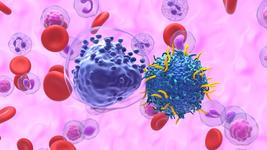Clinical Update: YolTech's Base-Editing Therapy YOLT-101 Gains Chinese IND Approval
CMN Intelligence - The World’s Most Comprehensive Intelligence Platform for CRISPR-Genomic Medicine and Gene-Editing Clinical Development
Providing market intelligence, data infrastructure, analytics, and reporting services for the global gene-editing sector. Read more...
YolTech Therapeutics announced on Monday that The Center for Drug Evaluation of the Chinese National Medical Products Administration (NMPA) has approved its IND application for YOLT-101, an in vivo base-editing therapeutic candidate designed to treat heterozygous familial hypercholesterolemia (HeFH, see Fact Box).
In June 2025, the FDA approved YolTech’s IND application for YOLT-101 in the United States. This week’s NMPA approval means that YolTech can now initiate a clinical trial of YOLT-101 in China, making it the first in vivo gene-editing therapeutic candidate for cardiovascular disease to enter the clinic in China and the United States.
Single-dose base-editing therapy to permanently lower harmful cholesterol levels
YOLT-101 is based on YolTech’s proprietary adenine base editor, YolBE, specifically hpABE5, which consists of nCas and a novel deaminase evolved from the gram-negative bacteria Hafnia paralvei. The candidate is delivered intravenously via YolTech’s lipid nanoparticle delivery system. Unlike traditional CRISPR/Cas9 systems that rely on DNA double-strand breaks, hpABE5 enables precise A•T to G•C base conversion without introducing breaks, which is believed to significantly reduce the risks of chromosomal abnormalities and off-target effects.
YOLT-101 works by permanently disrupting the PCSK9 gene in the liver, to durably lower disease-driving low-density lipoprotein cholesterol (LDL-C). Elevated LDL-C levels lead to clogged arteries in the heart and are a driver of a number of cardiovascular conditions including HeFH , a prevalent and potentially life-threatening subtype of atherosclerotic cardiovascular disease.
The candidate is currently being evaluated in a Phase 1 investigator-led trial in China. Interim clinical data from six patients enrolled in that trial, released in April 2024 and shared on the preprint server medRxiv, showed dose-dependent, durable LDL-C reduction and a favourable safety profile following a single intravenous dose of YOLT-101. Specifically, PCSK9 levels decreased by 75.8% and LDL-C levels dropped by 50.4% at four months in the highest dose group (0.6 mg/kg), while the most common side effects were mild infusion-related reactions (83%) and temporary liver enzyme elevations (50%), with no serious adverse events reported.
Familial hypercholesterolemia (FH)
Familial hypercholesterolemia (FH) is a genetic disorder characterised by life-long elevated levels of low-density lipoprotein cholesterol (LDL-C) in the blood, which results in a greater risk of developing atherosclerotic cardiovascular disease. The disorder affects more than 3 million people in the United States and Europe and is caused by an inherited genetic mutation that leads to an inability to remove the extra cholesterol that accumulates in the blood. Mutations in the LDLR, LDLRAP1, APOB, and PCSK9 genes have been determined to be causative, with LDLR mutations being the most common.
Heterozygous FH (HeFH) is the most common form of FH; this is caused by a single DNA variant inherited from one parent. LDLR is responsible for the production of the low-density lipoprotein receptor which binds to LDLs and removes them from the body, subsequently removing excess cholesterol. LDLR therefore plays a critical role in cholesterol regulation and mutations in the gene lead to elevated levels of LDL.
The current treatment approach is focused on reducing LDL levels in the body, and involves a combination of diet, exercise and statin-based drugs. These treatments are life-long and most individuals living with FH are not at their LDL-C goal.
Other clinical-stage gene-editing therapies in development for HeFH include Verve Therapeutics' base-editing candidate VERVE-102 (targeting PCSK9, Phase 1, recruiting) and VERVE-201 (targeting ANGPTL3, Phase 1, recruiting). We will continue to provide updates on YOLT-101 and other clinical trials for HeFH as new details emerge.
You can find all our previous news articles about gene-editing clinical trials here. For a complete overview of CRISPR IND approvals and ongoing gene-editing trials, check out CRISPR Medicine News' Clinical Trials Database.
“The European CRISPR Medicine Consortium is quietly gathering under the CMN umbrella.
Exploring the frontier of gene editing for therapeutic precision — this network is
not public yet, but it’s real. Watch the signals, track the sequences.
Only those who search will know. ”R
To get more CRISPR Medicine News delivered to your inbox, sign up to the free weekly CMN Newsletter here.
Tags
ArticleNewsClinical News UpdatesFamilial Hypercholesterolemia, FHBase editorsYolTech Therapeutics
CLINICAL TRIALS
Sponsors:
Base Therapeutics (Shanghai) Co., Ltd.
Sponsors:
Base Therapeutics (Shanghai) Co., Ltd.







